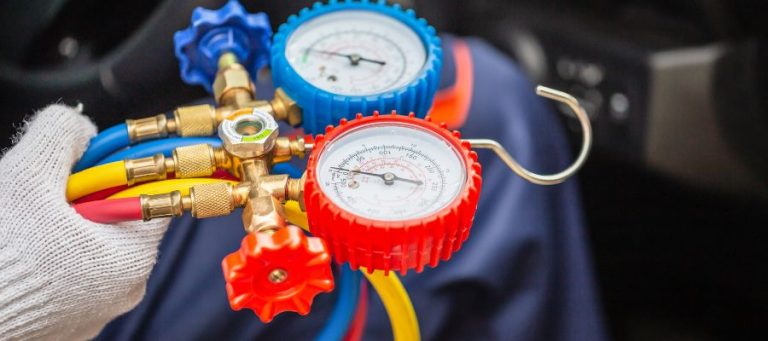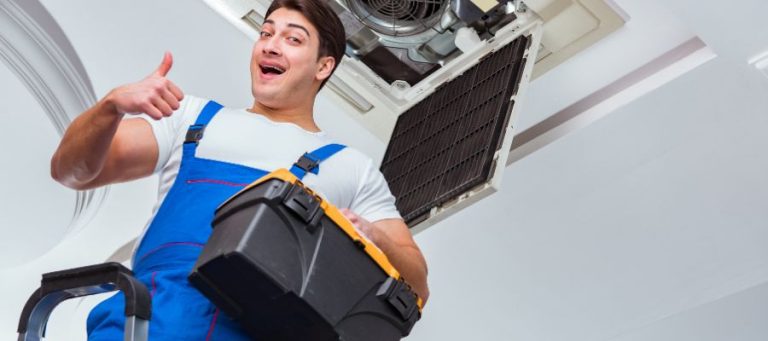

HVAC Services
Get Professional Repairs From The Area's Trusted HVAC Technicians. Ask About Our Services! We Offer Professional Heating & Cooling System Repairs And Guarantee Long-Lasting Results.
Got Question? Call us: (850) 678-2665Financing
The Comprehensive Guide to HVAC System Repair and Maintenance

As an integral part of modern residential and commercial buildings, Heating, Ventilation, and Air Conditioning (HVAC) systems ensure a comfortable and healthy environment. This comprehensive guide aims to provide insights into the basics, maintenance, repair, installation, and efficiency of HVAC systems. It will also introduce you to common troubleshooting techniques, safety measures, the top HVAC system brands, seasonal tips, and the latest technology trends in HVAC.
Understanding HVAC System Basics
HVAC is a system designed to manage and control indoor environmental conditions, providing heating, ventilation, and air conditioning as needed. The core components of HVAC systems include heating equipment (such as furnaces or heat pumps), cooling devices (like air conditioners), and ventilation mechanisms that ensure proper air circulation. Understanding how these components interact is crucial for diagnosing and repairing common HVAC issues.
The Importance of Regular HVAC System Maintenance
Just like any other equipment, HVAC systems require regular maintenance to function optimally. Routine check-ups can significantly extend the lifespan of your HVAC components and ensure they work at peak performance levels. HVAC maintenance involves tasks such as system inspection, cleaning, air filter replacement, and system tune-up.
System Inspection
Regular HVAC inspection helps identify potential problems before they escalate. It includes checking the system’s components for any signs of wear and tear.
Cleaning
Regular cleaning of the HVAC system, including duct cleaning, is essential to remove dust and debris, which can hamper the system’s efficiency and indoor air quality.
Air Filter Replacement
Air filters play a crucial role in maintaining indoor air quality. Replacing or cleaning them regularly ensures the HVAC system runs efficiently and improves air quality.
When and How to Repair Your HVAC System
HVAC repairs can range from simple fixes, such as replacing a faulty thermostat, to more complex issues that require professional HVAC technicians. Some common HVAC problems include system noises, insufficient cooling or heating, and unresponsive thermostats. It’s essential to call a professional for repairs if you notice any irregularities in your HVAC system’s performance to avoid more serious damage or even system failure.
Installing a New HVAC System
When it comes to installing a new HVAC system, it’s important to work with a professional HVAC contractor. They can help you choose the right system for your needs, considering factors like energy efficiency, system size, and cost. Whether you’re installing a high-efficiency AC, a new furnace, or an entire central air system, a professional HVAC installation ensures the job is done correctly and safely.
Enhancing HVAC System Efficiency
Efficiency is a key aspect of any HVAC system. An energy-saving HVAC system not only reduces environmental impact but also cuts down energy costs. High-efficiency systems, programmable thermostats, and regular maintenance can greatly improve your HVAC system’s efficiency. Furthermore, paying attention to the SEER rating (Seasonal Energy Efficiency Ratio) when buying a new HVAC unit can ensure you get an energy-efficient model.
Troubleshooting Common HVAC Issues
While some HVAC problems require professional intervention, others can be fixed with some basic troubleshooting. If your system is not cooling or heating properly, or the HVAC system makes unusual noises, a quick diagnosis may reveal simple solutions such as resetting the thermostat or cleaning clogged filters.
Safety Measures in HVAC Operations
Safety should never be overlooked when dealing with HVAC systems. Following HVAC safety precautions and standards can prevent accidents and enhance the overall performance of your HVAC system. Maintaining indoor air quality, one aspect of HVAC safety can help prevent health issues associated with poor air quality.
Best HVAC System Brands
Choosing the right HVAC system brand can make a significant difference in terms of reliability, efficiency, and durability. Some top HVAC brands include Carrier, Trane, Lennox, and Goodman, each offering a unique blend of quality, value, and advanced features.
Seasonal HVAC Tips
Different seasons call for different HVAC needs. To winterize your HVAC system, for example, you might need to insulate your home better, while summer might call for some cooling tips to improve comfort and efficiency. A seasonal HVAC checklist can be a great tool for maintaining your HVAC system year-round.
The Future of HVAC: System Technology Trends
The HVAC industry is continuously evolving with the advent of new technologies. Smart thermostats, IoT in HVAC, system automation, and advanced HVAC system upgrades are changing the way we heat, cool, and ventilate our homes and offices. Staying current with these trends can help you make informed decisions about your HVAC system’s future.
Conclusion
Understanding and maintaining your HVAC system is crucial for its longevity and efficiency. Whether you’re troubleshooting a problem or considering a new installation, remember the importance of safety and choose trusted, quality brands. Always rely on professional guidance when needed, and keep an eye on the latest HVAC technology trends to make the most of your HVAC system.



